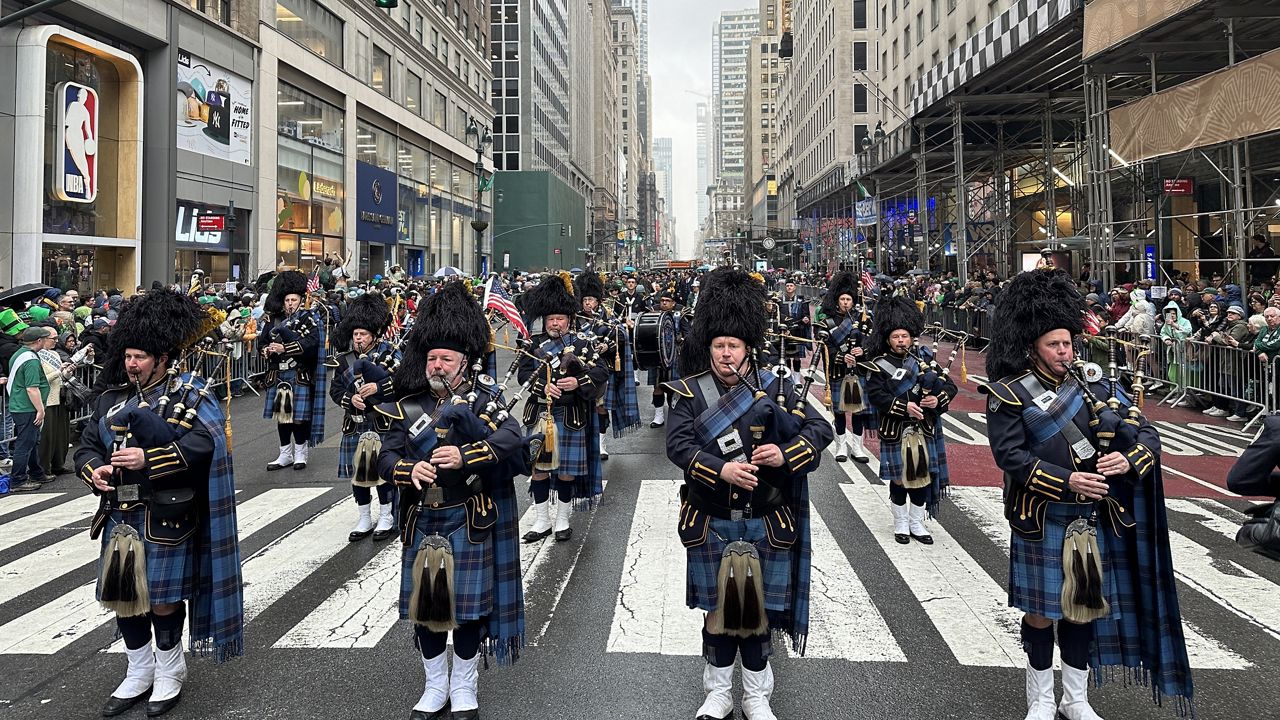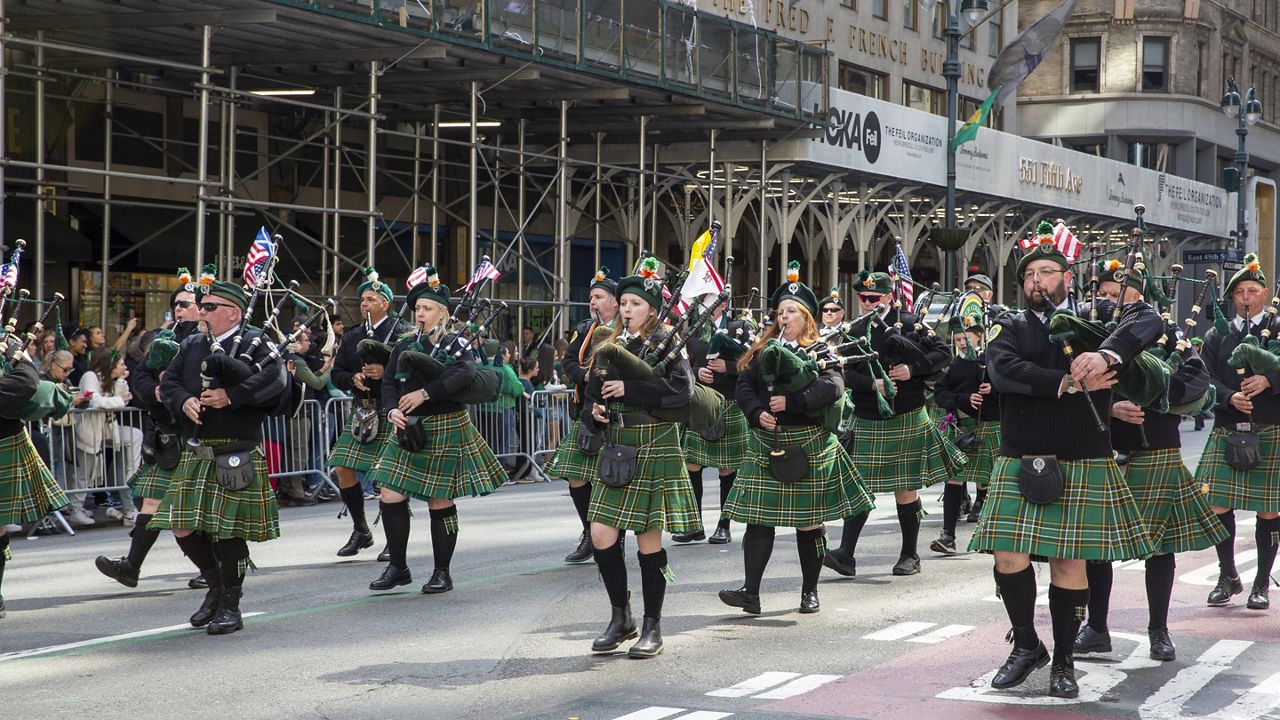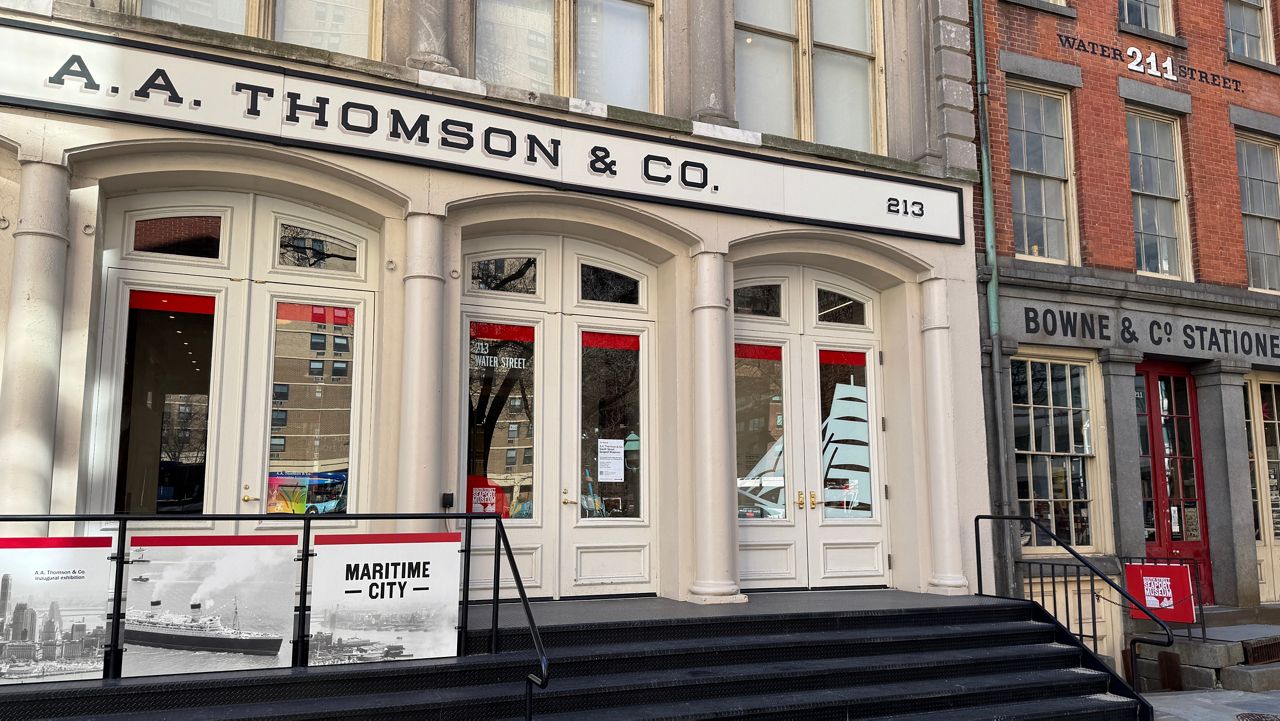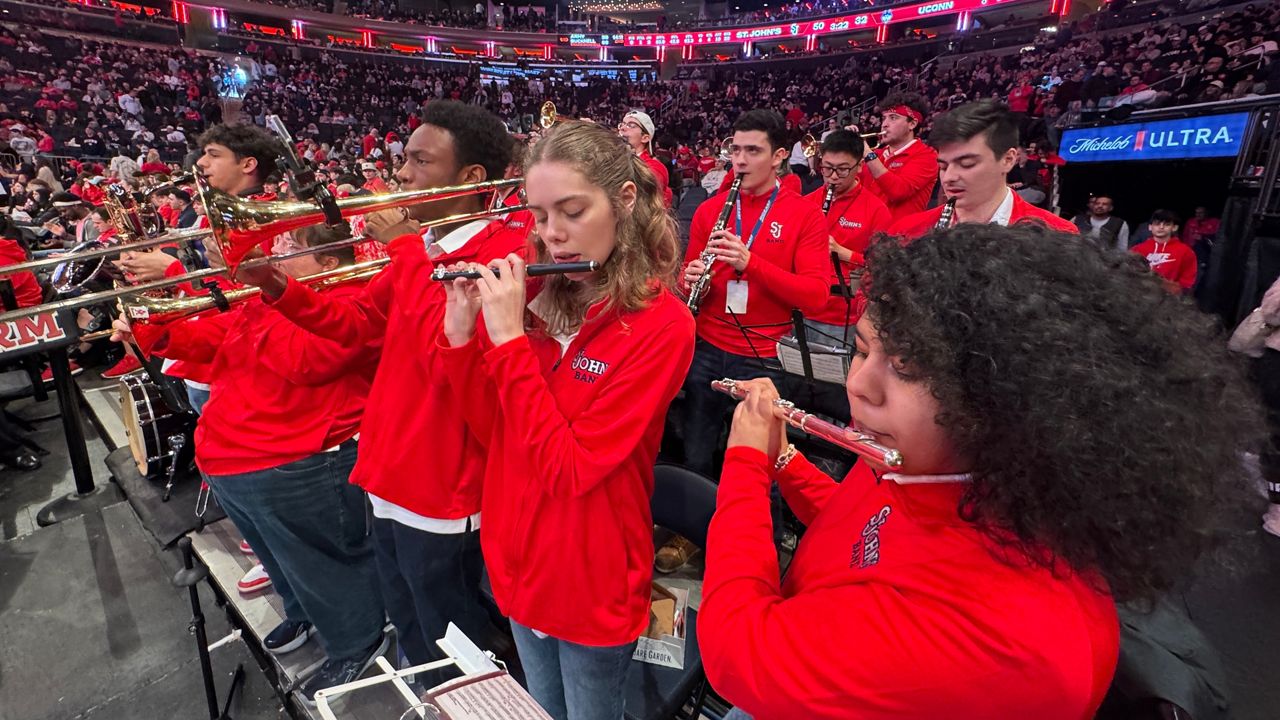Anthony Luciano sits at a skiver, something he has probably done what feels like to him a million times. Skills passed down from his family.
“I watched my mother and grandmother always do hand work and I was fascinated by how they could create these beautiful things,” Luciano said.
Luciano has made handbags here in his Garment Center studio for more than 20 years. He’s one of 180,000 garment workers in the area — about 6% of the city’s industrial workforce.
A far cry from the district’s heyday that started at the beginning of the last century. Nearly half of the city’s industrial workforce was employed there.
Luciano’s family was among them. His grandmother came to the United States from Piano Di Montavento near Naples, Italy. In a picture from 1928 she’s holding his mother.
His grandmother got work sewing, which led to Luciano’s mother taking on the trade and with it passed on a passion for Italian culture.
“My signature is stitching a penny inside the lining. It is an Italian tradition,” Luciano said. “I learned from my grandparents if you give a handbag or a wallet as a gift, you put money inside first because it instills good fortune.”
In the early 1900s Italians made up roughly one third of garment workers in the city, according to historians.
“The leadership of the Italian community and the Italian Unions really pushed for reform in New York City and New York State,” Adjunct Professor at CUNY Urban and Labor Studies Daniel Katz said.
Katz says Italians were part of the labor movement that fought for fireproof construction, more stairwells and exits after the Triangle Shirtwaist factory fire in 1911.
One third of the 146 deaths were Italians. The Italian Local Union 89 was formed in 1919, representing the Italian Dressmakers in New York City.
“The Italians had their own local union in part because they were so committed to their language and their culture that they wanted to explore that culture within the union context,” Katz said.
Luciano doesn’t know what, if any, role his family played in improving worker rights. But knowing the Italian people were instrumental is a point of pride.
“It makes me pretty proud actually that I get to continue doing what I love and that it was inspired by my mother and grandmother,” Luciano said.


%20PKG%20Italian%20leather%20worker%20Clean_127919499_2006?wid=320&hei=180&$wide-bg$)




